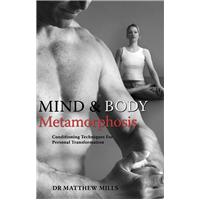
MindWeavers plc, the company behind the unique computer-based brain workout MindFit, has set you to a memory test.
The challenge comprises 12 simple questions covering events from throughout the year, each question designed to test the memory.
Which teams played in the final of the Rugby World Cup?
Which famous tenors funeral was held in Modena?
Which novice driver came close to winning the F1 Grand Prix
Championship?
Who was Nicholas Sarkozys opponent in the French Presidential
Election?
In which month did Tony Blair finally resign?
Which royal couple celebrated their golden wedding anniversary in
2007?
In which country were thousands of monks arrested after protesting
again Human Rights abuses?
Which virus affected British cattle farmers in 2007?
Which Government departments were chopped in Gordon Browns first
cabinet reshuffle? And for a bonus point, what have they now become?
Which concert was organised to raise awareness of global warming?
In his final budget before becoming Prime Minister, by how much did
Gordon Brown cut income tax?
Which novel, released in June 2007 completed the adventures of
Harry Potter?
How good is your memory and could you benefit from a regular brain workout in 2008?
There is widespread recognition that mental as well as physical fitness helps us to live longer and healthier lives, and that an active brain maintains our quality of life as we get older. So along with the traditional New Years resolutions to achieve physical fitness, MindFit is offering an effective way of exercising our brains as well in 2008.
Clinical trials have demonstrated that using MindFit for twenty minutes a day, three times a week can promote a healthier mind.
As the craze for brain exercise sweeps across the UK, an independent survey conducted by NOP shows that nearly two thirds of people over 50 say that they do crosswords, and one in five computer games to keep their brain active. While these forms of activity may help, MindFit has been scientifically proven to improve important skills such as memory, reaction time and spatial awareness, protecting against the effects of ageing.
MindWeavers, the team that has brought MindFit to the UK includes renowned neuroscientist Dave Moore who set up the company in 2000 whilst at Oxford University, and top brain scientist Baroness Professor Susan Greenfield, Director of the Royal Institute.
MindWeavers Chief Executive Officer, Bruce Robinson concluded, MindFit raises the seriousness of brain exercise while still being fun to use.
During the season when many consider turning over a new leaf for the new year ahead, MindFit provides the ideal opportunity to keep your brain healthy in 2008.
MindFit can be purchased through the MindWeavers website: www.mindweavers.co.uk or by telephoning 0845 643 2742 within the UK.
* The independent NOP Omnibus including questions commissioned by MindWeavers interviewed 473 adults aged 50+ was conducted by telephone during 24th-26th August 2007. The results were weighted in order to be nationally representative.
MindFit retails in the UK at £89.99 and can be purchased through the MindWeavers website: < a href="http://www.mindweavers.co.uk">www.mindweavers.co.uk
MindWeavers plc is a University of Oxford spin-out company which creates and sells software products that apply World-leading neuronal science to harness the dynamism of the human brain. The Companys innovative software products can maintain brain health in older people, protecting against age-related mental decline and dramatically improve childrens language learning abilities.
MindWeavers moved into the brain exercise and brain health market with the acquisition of BrainBoost and is currently launching a series of innovative brain exercise products for the baby boomer market, as well as trialling brain health products that aim to protect people who have been diagnosed with early cognitive decline.
Answers to the Quiz how did you score?
Which teams played in the final of the Rugby World Cup?
England and South Africa
Which famous tenors funeral was held in Modena?
Pavarotti
Which novice driver came close to winning the F1 Grand Prix
Championship?
Lewis Hamilton
Who was Nicholas Sarkozys opponent in the French Presidential
Election?
Segolene Royal
In which month did Tony Blair finally resign?
June
Which royal couple celebrated their golden wedding anniversary in
2007?
HRH Queen Elizabeth and Prince Philip
In which country were thousands of monks arrested after protesting
again Human Rights abuses?
Burma
Which virus affected British cattle farmers in 2007?
Blue Tongue
Which Government departments were chopped in Gordon Browns first
cabinet reshuffle? And for a bonus point, what have they now become?
DTi and Department of Education
DTi now Department of Business, Enterprise and Regulatory Reform (BERR)
DfE now split into Department for Children, Schools and Families and Department of Innovation, Universities and Skills
Which concert was organised to raise awareness of global warming?
Live Earth
In his final budget before becoming Prime Minister, by how much did
Gordon Brown cut income tax?
2%
Which novel, released in June 2007 completed the adventures of
Harry Potter?
Harry Potter and the Deathly Hallows




